
THE ULTIMATE BIRTHSTONE GUIDES
Discover the gemstones of your birth month with the Ultimate Birthstone Guides! From January to December, uncover the knowledge of your modern and traditional birthstones that you probably never knew existed.

The Birthstone of January: Garnet
January-born, rejoice! Whether you’re under the sign of Capricorn or Aquarius, you’re united by the singularly stunning birthstone of January: the Garnet. Renowned for its deep, mesmerizing red hue, Garnet stands out as the sole gemstone representing January, both in modern and traditional contexts. Dive into the intriguing world of Garnet, as we explore its rich symbolism, captivating history, and unique characteristics!
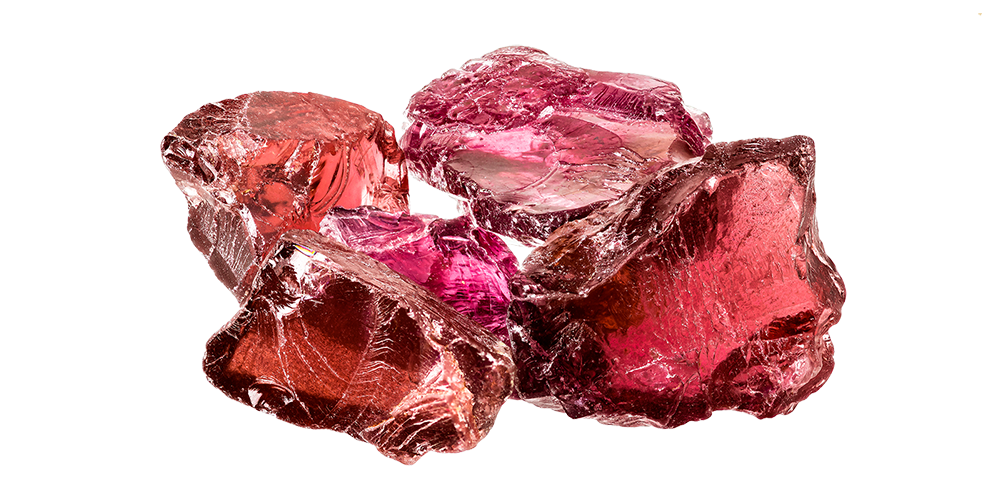
Garnet, Chosen Specifically for December
Why is Garnet January’s One Exclusive Birthstone?
January’s unique bond with the Garnet gemstone has been woven through the annals of history. Unlike other months, which may boast up to three different stones, each month typically features one or two birthstones. This distinction is based on whether the stones are modern or traditional. Modern birthstones, defined in the 1950s by the Jewelers of America, often differ from their traditional counterparts, which have been linked to their respective months since the early 20th century, and even earlier.
Over time, many traditional birthstones have become increasingly rare and elusive in the market, leading to the introduction of more accessible modern alternatives. However, the enchanting Garnet has stood the test of time, maintaining its status as both the traditional and modern birthstone of January, a testament to its timeless appeal and enduring beauty.

Glamorous Garnets
Origins & Features of Garnets
January’s crown jewel, the Garnet, is steeped in rich history and vibrant colors, claiming both modern and traditional titles of the month. The term “garnet” harks back to the 14th-century Middle English word “gernet,” meaning “dark red,” a nod to its captivating hues.
This word itself finds roots in the Latin “granatum,” translating to “seed,” reminiscent of the striking red seeds of a pomegranate that mirror the garnet’s signature color.
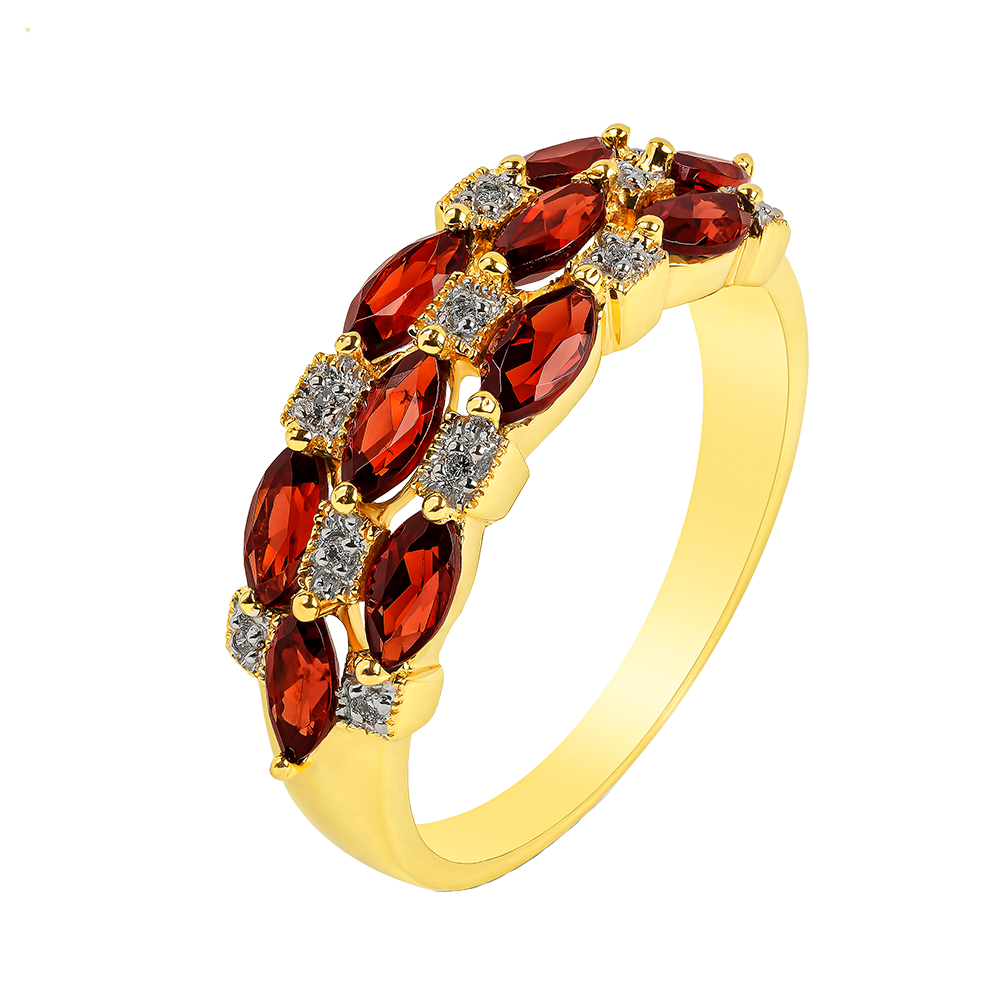
Garnet isn’t just a single stone; it’s an entire mineral group, presenting a spectrum of colors as varied as the rainbow itself. This group includes varieties like pyrope, almandine, spessartine, grossular, and andradite. Among these, some garnets boast a unique chameleon-like quality, shifting from blue in fluorescent light to a rich red under incandescent lighting, with the color-changing types being particularly rare.
The type of garnet that has the ability to change colors in different lights is the most rare of all.
The palette of garnets extends beyond the well-known reds, featuring over 20 species. Among these, the green Demantoid, the orange Spessarite, the red Pyrope, and the pink Rhodolite Garnet stand out for their distinct beauty.
Rhodolite Garnets
Rhodolite Garnets are actually a mixture of the two types of garnet minerals:
- Rhodolite Garnets, a blend of pyrope and almandine minerals, offer a spectrum ranging from pinkish-purple to reddish-purple. Their most sought-after shades include grape purple and raspberry pink.
- Rhodolite garnets sometimes display an enchanting optical phenomenon where light reflects off internal inclusions, creating a star or cat’s-eye effect, with 4-ray or 6-ray light orientations adding to their mystical allure.
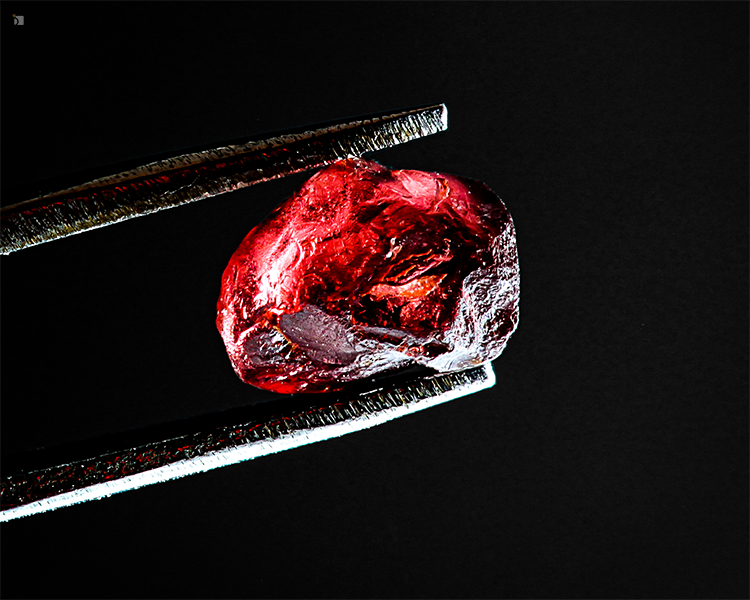
The Rich History and Deep Symbolism of Garnet
Cultural Significance and Fun Facts: Garnet in Lore and Legend
Garnets, a gem with a past as rich as its hues, have been coveted through the ages. In Victorian times, Bohemia was renowned for its red garnet treasures. Today, the African continent leads in garnet production, with other notable sources spanning Brazil, India, Myanmar, Afghanistan, Pakistan, and Sri Lanka.
This gemstone, steeped in legend and lore, has captivated cultures worldwide. Universally, garnets are emblems of peace, health, and friendship, and are thought to positively influence karma.
- The allure of garnets dates back to 3100 BC in ancient Egypt.
- In Ancient Rome, garnets held a practical charm, used to authenticate and seal important documents with their imprints.
- Beyond beauty, garnets served a functional purpose since the Bronze Age, transforming with water into a powerful abrasive, strong enough to slice through steel.
- In the romantic Victorian Era, garnets were a staple in engagement rings and mourning jewelry, symbolizing deep affection and remembrance.
- Ancient healers believed in the curative properties of garnets, especially for ailments of the heart and blood.
- During the Middle Ages, garnets were the gems of choice for clergy and nobility, coveted for their deep red brilliance.
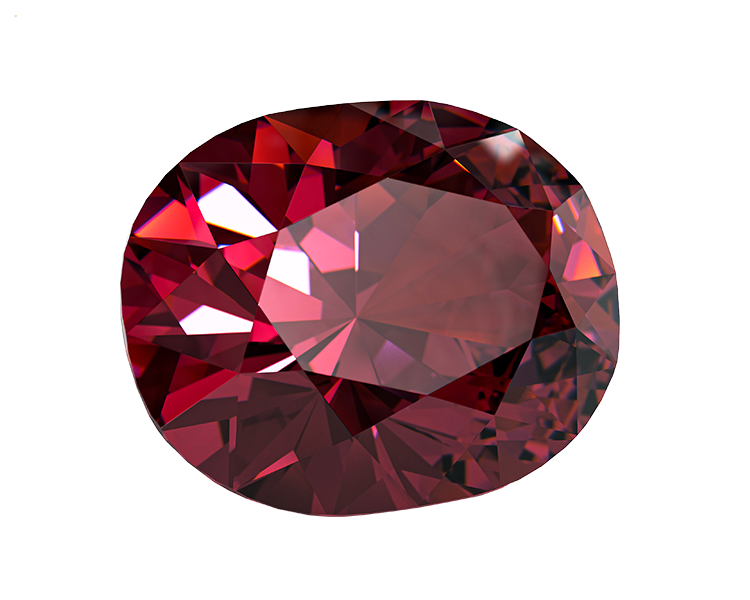
Buying the Right Garnet For You
When selecting the perfect garnet, it’s essential to consider the same key factors that apply to other precious gemstones: Color, Clarity, Cut, and Carat. Garnet, however, boasts unique characteristics that make it truly special. Its value is often influenced by the richness and intensity of its color, which can range from deep, wine-red hues to vibrant greens, fiery oranges, and even subtle purples. In addition to the Four C’s, the specific color variety of garnet is particularly significant, as each shade carries its own allure and rarity. While red garnets are the most commonly recognized, some of the most prized examples include the vivid green tsavorite and the radiant orange spessartine, making garnets a versatile and captivating choice for any collection.
For those celebrating a 2nd wedding anniversary or a January birthday, a garnet is not just a gift but a piece of history and a symbol of enduring bonds, peace, and well-being.
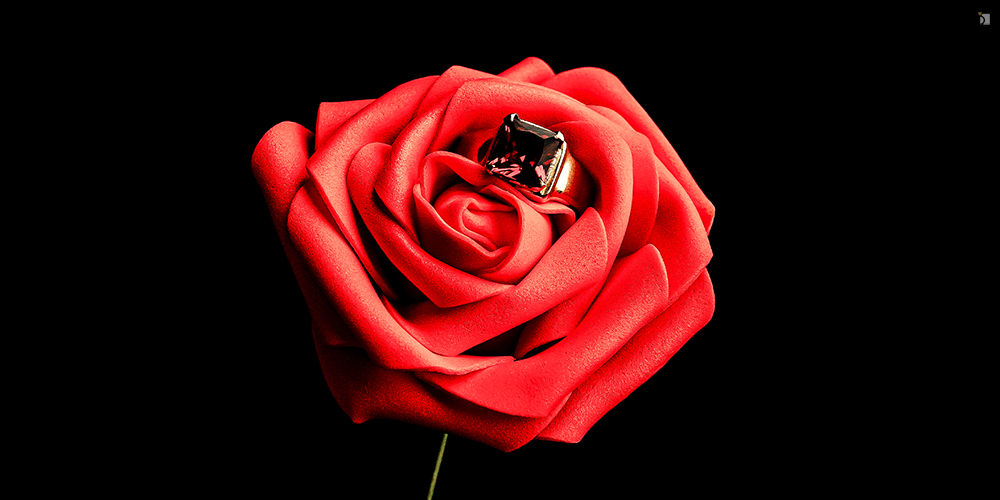
Essential Tips for Maintaining and Caring for Your Garnet
Garnets, with their alluring sparkle, possess a hardness of 6.5 to 7.5 on the Mohs scale, making them robust yet more delicate than diamonds, rubies, and sapphires. Ideal for everyday elegance, garnets shine brightest in earrings, brooches, and pendants, as their durability is more suited for these forms than the daily rigors faced by rings, necklaces, and bracelets.
To understand their care needs, consider this: Quartz, found in everyday dust, ranks 7 – 7.5 on the Mohs scale, capable of dulling finishes and scratching surfaces. In contrast, diamonds, at the pinnacle of hardness, stand at 10. Garnets, nestled between these extremes, require mindful wear and gentle care.
Here’s how to keep your garnets dazzling:
- Gentle Cleaning: Most garnets are untreated gems, thriving under mild soap and warm water. Use a soft cloth for a gentle touch.
- Chemical-Free Maintenance: Steer clear of harsh chemicals, abrasives, lotions, and sanitizers that can mar your garnet’s brilliance.
- Temperature and Light Caution: Protect your garnets from extreme heat and temperature shifts to prevent internal damage. Prolonged exposure to sunlight can also lead to fading.
- Avoid Harsh Cleaning Methods: Ultrasonic cleaners and steam machines are a no-go for garnet care.
For those seeking professional touch-ups, such as a thorough clean and polish, our Gemstone Services are at your disposal. Dive deeper into maintaining the timeless beauty of your cherished garnets with us.

Replacing Your Missing Garnet
Reviving Your Treasured Garnet Jewelry
Is it time to breathe new life into a cherished garnet piece, a symbol of deep affection and memories? You’ve arrived at the perfect destination for rejuvenating those irreplaceable sentiments.
Gemstones are the heart of jewelry, radiating unmatched beauty and vitality. Yet, they are also vulnerable to wear and tear. Be it a dislodged, missing, or scuffed Garnet, we understand the importance of reviving your precious keepsakes. Our commitment is to restore the sparkle to your jewelry, making it shine as brilliantly as the first day it was cherished.
At the core of our service is a dedicated team of specialists, adept at sourcing the perfect gem for every unique piece. We recognize the distinctiveness of your gemstones and their specific needs. Our Professional Stone Sourcing team is committed to finding replacement stones that match the original’s quality and character, ensuring your jewelry regains its original glory.
Explore our Gemstone Replacement Services for a comprehensive insight into how we can restore the luster and beauty of your Garnet jewelry.
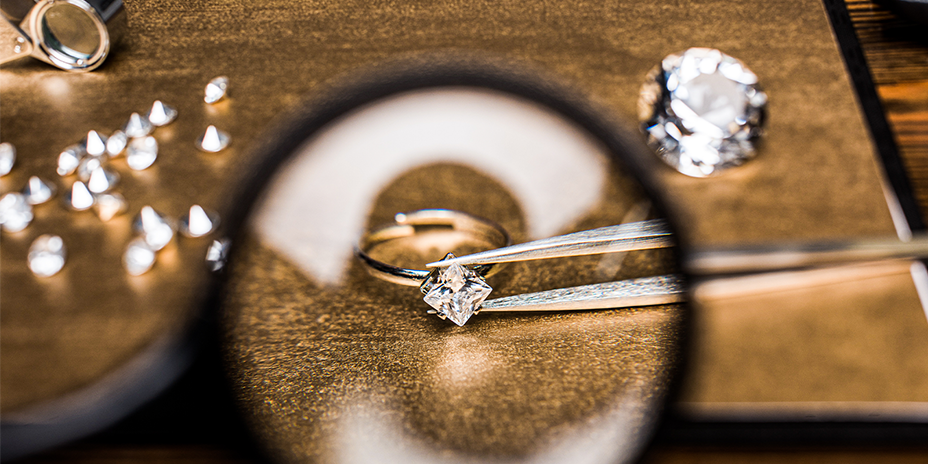
Originally Published January 12, 2023, Updated and Expanded December 27, 2024

Resources:
- January Birthstone Information: https://www.americangemsociety.org/
- January Birthstone Information: https://www.gia.edu/
- January Birthstone Information: https://www.gemsociety.org/
- Blog outline and revising assisted by AI resources such as Chat-GPT.
Have Questions?
“If you were born in January, your month’s birthstones are Garnets.
If you didn’t already know, there are some months that have multiple birthstones, whereas some only have one. Traditional birthstones are gemstones that were most commonly associated with its respective month in the early 20th century and even beyond, with Ancient Greek and Roman philosophers associating these gemstones with the star signs. Those that are more commonly known in this day and age are the modern birthstones, which were officially named by the Jewelers of America in the 1950’s.
If you would like to learn more about birthstones in general, visit our Ultimate Birthstone Guide!“
“A basic clean, polish, and inspection is part of the routine care and maintenance needed to keep your jewelry looking like new. The inspection process includes looking for loose stones, bent prongs, and any damage to the metal or stones that need to be repaired.”
“A stone setting repair can be a simple re-tipping of a worn prong (which is considered routine care and maintenance) or the complete rebuilding/replacing of a damaged prong. In the case of severe damage, the entire head of the ring may need to be replaced.
Regardless of whether or not the prongs are compromised due to normal wear and tear or a result of accidental damage, we can provide the routine care and maintenance in order to ensure you do not lose a stone in your setting.”
“The process of a Gemstone Replacement is simple enough, yet requires trained eyes to be able to make a flawless switch. We aim to leave no trace of our work, which means not only will your setting be perfected, but the gemstone we choose will complete your jewelry piece effortlessly.”
Explore the Magic of Our Gemstone Services!
We are proud members of the

Our team includes gemologists certified by

